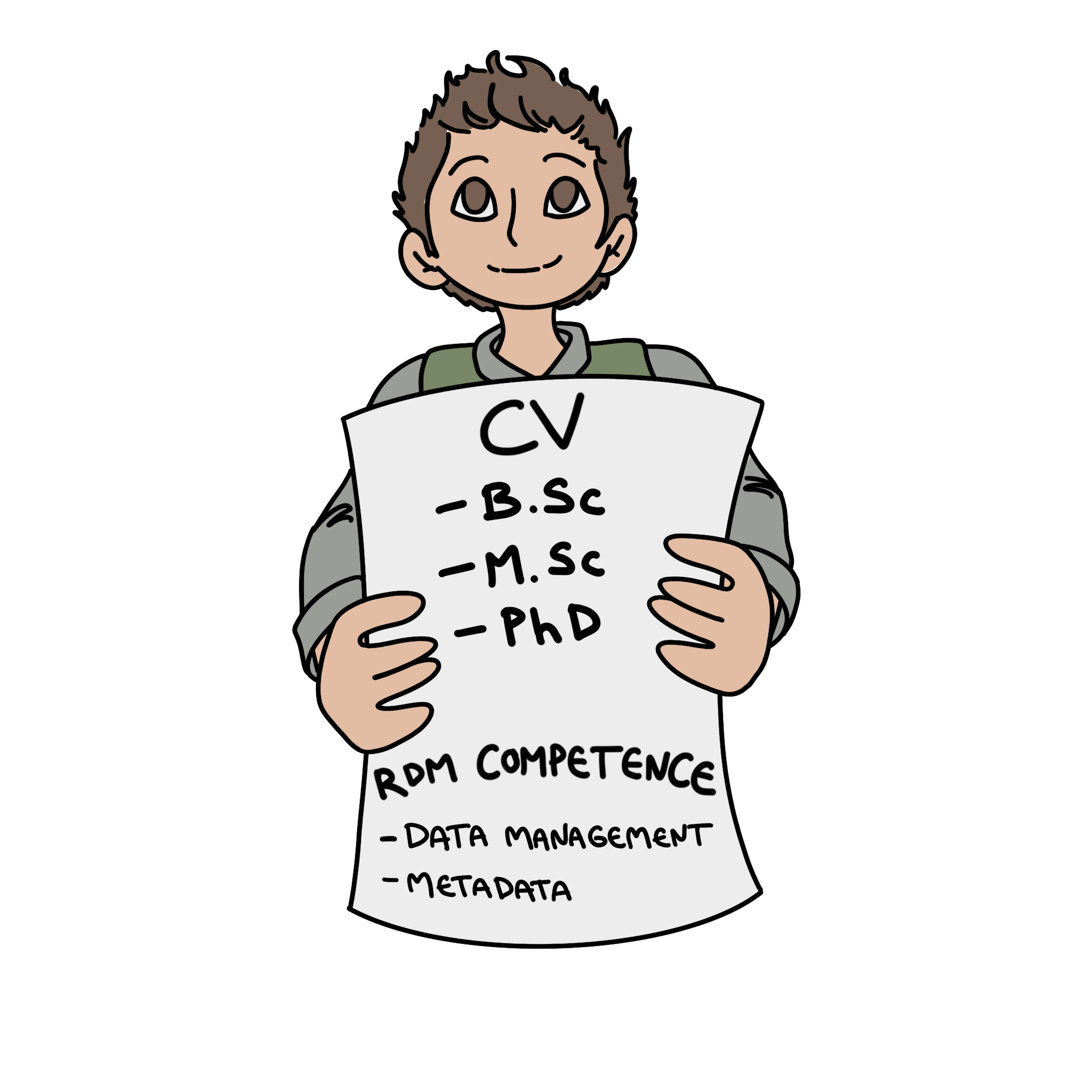Why Research Data Management can boost your career
In chemistry – both in the academic world and in industry – the efficient management of research data is playing an increasingly important role. The ability to collect, organize, document and archive digital data is essential not only for the quality of the research itself, but also for the reproducibility, transparency and reusability of research results.
Young academics who familiarize themselves with the topic of research data management (RDM) and develop the relevant skills will gain a valuable asset for their CV.

Why is RDM so important?
Funding bodies and research institutions are increasingly demanding RDM plans: many funding programs and institutions require the creation of an RDM plan as a prerequisite for applying for funding or carrying out research projects. Good RDM practice increases the quality of research: Careful research data management minimizes the risk of data loss and errors and thus contributes to the quality and reliability of research results. Regardless of the field, RDM knowledge and skills are required in all areas of chemistry. In many research institutions and especially in the chemical industry, data has long been managed digitally, from simple ELNs to complex laboratory information management systems (LIMS).
How can you acquire FDM skills?
NFDI4Chem offers a wide range of courses specifically for researchers in chemistry to acquire RDM skills. These include
- Online courses: NFDI4Chem offers various online courses on topics such as data management, Chemotion ELN and LabIMotion.
- Workshops and training courses: Workshops and training courses on current RDM topics are offered on a regular basis, including on-site at the invitation of institutions.
- Consulting services: Researchers can contact helpdesk@nfdi4chem.de with questions about RDM.
Highlighting RDM in your CV
To highlight your RDM skills in your CV, you should consider the following points:
- Create a separate section for your FDM skills.
- Use relevant keywords such as “research data management”, “data archiving”, “metadata” and “data management”.
- Give specific examples of your RDM experience, e.g. creating an RDM plan for a research project or using RDM software.
- Mention your RDM certifications.
By familiarizing yourself with the topic of research data management and developing your skills in this area, you can improve your career opportunities and make an important contribution to the quality of scientific research. The NFDI4Chem offers provide an excellent opportunity for researchers in chemistry in particular to further their education in the field of RDM and deepen their expertise.